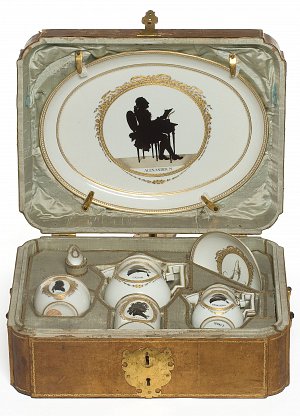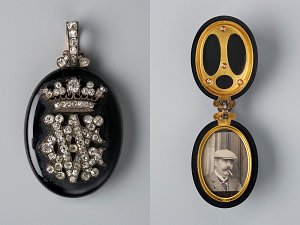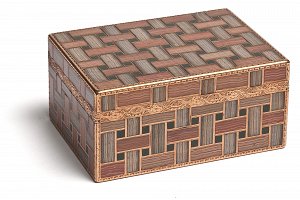
Solitary luncheon, Meissen Manufacture 1780/1790
© MAD, Paris / Jean Tholance
The Marchesa Arconati Visconti, born Marie Peyrat, was celebrated for her personality and unusual personal journey, her political convictions and evident intellectual qualities. Hailing from a humble background, she was raised by her father Alphonse Peyrat, a journalist, Deputy Republican, and Senator of the Third Republic. She attended courses at the École nationale des chartes in 1873, where she met and married the Marchese Giammartino Arconati Visconti, a member of the Italian aristocracy. However, their marriage was short-lived, the Marchese died in 1876 of typhoid fever. His wife was the sole heiress of his estates.
After the death of her husband, the widowed Marchesa settled in Paris. For many years, the salon she held in the Hôtel Particulier of the Rue Barbet-de- Jouy was attended by leading politicians and professors such as Léon Gambetta, Émile Combes, Jean Jaurès, Joseph Reinach, Gaston Paris, Gabriel Monod, Abel Lefranc, Joseph Bédier of the École nationale des chartes, the École des Hautes Études and the Collège de France. In this intellectual salon, she met prominent personalities who were amongst the earliest supporters of Captain Dreyfus, one of the most controversial and polarizing political figures in modern French history, with whom she kept a regular correspondence.

Philippe Fuzeau, medallion bearing the initials of the Marchese Giammartino Arconati Visconti and containing a photography of Raoul Duseigneur, 19th century
© MAD, Paris / Christophe Dellière
The Marchesa also hosted and associated with museum curators, art lovers, and collectors, including Raoul Duseigneur, who advised her on her acquisitions of paintings, sculptures, furniture and objets d’art.
Her choices show her eclectic taste, with donations to the Musée des Arts Décoratifs including silverware, Meissen porcelain, Renaissance jewelry as well as contemporary jewels – some by Lalique, fragments of medieval stained-glass windows, 18th century tapestries, and works of Asian art.
A “benefactress of arts and letters”, as she was called in a tribute upon her death, the Marchesa Arconati Visconti was engaged in many fields. She made significant contributions for the development of higher education including scholarships and prizes encouraging research in France and granting subsidies to the École des chartes, the École Pratique des Hautes Études, the Collège de France and many others. She made the Université de Paris her sole legatee. A vast majority of her own collection of books, some of which she inherited through her husband’s and own family were donated to libraries.

Brooch, China Reign of Qianlong (1736/1796), 18th century
© MAD, Paris / Jean Tholance
For the very first time, this exhibition presents a selection of her collection of artworks and objects, thanks to the exceptional cooperation of the various institutions supported by the Marchesa, such as the Musée du Louvre, the Musée des Beaux-Arts of Lyon, the Cité de la Céramique – Sèvres et Limoges and the municipal library of Lyon. Additional objects were loaned from the Marchesa’s many beneficiary institutions including the Archives Nationales, the Bibliothèque nationale de France, the Médiathèque de l’Architecture et du Patrimoine, the Bibliothèque Historique de la Ville de Paris, the bibliothèque inter-universitaire de la Sorbonne and the Chancellerie des universités de Paris.

Johann Christian Neuber, snuffbox Dresden, ca. 1765/1770
© MAD, Paris / Jean Tholance
By shedding light onto the life of the Marchesa Arconati Visconti, a woman in a world of men and an outstanding collector and philanthropist, the Musée des Arts Décoratifs celebrates one of its great patrons, in a tribute to the history of the institution founded in 1882 under the initiative of collectors, industrialists, artists and artisans.